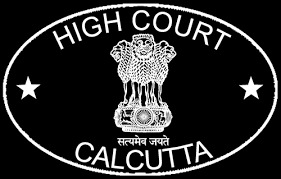Sudhir Narain, J.@mdashThis writ petition is directed against the order of the Deputy Director of Consolidation dated 18.11.1983, setting aside the order of the Settlement Officer, Consolidation and restoring that of the Consolidation Officer.
2. The dispute is as to whether Mst. Jagia had any share in the land in dispute and the sale-deed executed by her in favour of Respondents 2 and 3 is valid. The following pedigree is relevant:
Fakire
----------------------------------------------------------------
Ram Prasad Mst. Media Mst. Rukia
(Respdt. No. 4) = Rameshwar
Mahabir
Kodu
----------------------------------------------------------------
Asha Ram Bhadaila Mst. Jagia Mst. Semia
(Petitioner)
3. Fakire was recorded as occupancy tenant of the land in dispute. He died leaving behind him Ram Prasad, his son and Mst. Media and Mst. Rukia daughters. To obtain bhumidhari certificate, ten times of annual rent of the Khata in question was deposited on 15.12.1949. Bhumidhari Sanad No. 34/01814 was issued in the name of Ram Prasad son of Fakire and Mst. Jagia and Mst. Semia, daughters of Mst. Rukia. The names of Ram Prasad, Mst. Jagia and Mst. Semia were recorded in revenue papers. The entry continued in the name of these persons and they were also recorded in Khatauni 1359F. Mst. Semia died in the year 1961. Mst. Jagia sold her share to Mahadeo and Sahdeo, Respondents 2 and 3 by a registered sale-deed on 26.8.1966. Ram Prasad sold his half share in favour of his sister Mst. Media on 26.9.1966. Mst. Jagia died and after her death, her father Rameshwar filed an application for mutation of his name as her heir and legal representative on 16.1.1967. The Assistant Collector allowed the application on 27.1.1969 and the name of Rameshwar was recorded. Ram Prasad filed suit for cancellation of the sale-deed executed by Mst. Jagia in favour of Mahadeo and Sahdeo on 14.10.1969. This suit was, however, abated in view of the commencement of the consolidation proceedings in the village.
4. In the basic consolidation records, the names of Rameshwar and Mst. Media were recorded as tenure-holders of the land in dispute. Respondents 2 and 3 (hereinafter referred to as the Respondents) filed an objection alleging that Ram Prasad and Mst. Jagia were tenure-holders of the plot in dispute. They became bhumidhars after depositing ten times annual rental. Mst. Jagia had half share therein. She sold her half share by sale-deed dated 26.8.1966 and their names should be recorded over half share of Mst. Jagia after deletion of the name of Rameshwar. Another objection was filed by Ram Prasad stating that he had deposited ten times annual rental and the name of Mst. Jagia alias Mulia widow of Ram Sanehi and Mst. Semia wife of Bhojraj were got recorded by way of consolidation only without consent of Zamindar. Mst. Jagia had died on 15.8.1966. She never executed any sale-deed on 26.8.1966 in favour of the Respondents. They have obtained the sale-deed from seme woman impersonating herself as Mst. Jagia. Mst. Semia died in the year 1961. He had executed a registered sale-deed of his half share in favour of his sister Smt. Media on 26.9.1966. He prayed that his half share be separated from that of Mst. Media.
5. The Consolidation Officer after considering the evidence on record held that Mst. Jagia and Mst. Semia were admitted as co-tenants and they were co-tenure-holders of the land in dispute. Mst. Jagia had executed sale-deed in favour of the Respondents on 26.8.1966. They had half share in the land in dispute. Ram Prasad had sold his half share in favour of his sister Mst. Media on 26.9.1966. Mst. Semia died in 1961. The Consolidation Officer by order dated 28.2.1977 accordingly held that Respondents have half share and Mst. Media is bhumidhar of the remaining half share. Ram Prasad filed an appeal before the Settlement Officer, Consolidation. The Settlement Officer, Consolidation allowed the appeal by order dated 31.8.1979 holding that the mere entry in the revenue records did not create any right in favour of Smt. Jagia and Mst. Semia. The Respondents filed revision before the Deputy Director of Consolidation, Banda, Respondent No. 1 Respondent No. 1 allowed the revision by order dated 13.11.1983 and restored the order of the Consolidation Officer.
6. Sri Yatindra Singh, learned counsel for the Petitioner urged that the Deputy Director of Consolidation had no Jurisdiction to decide the questions of fact while exercising the power u/s 48 of the U.P. Consolidation of Holdings Act. He has placed reliance upon the decision of the Hon''ble Supreme Court in
It is clear that the Director had power to satisfy himself as to the legality of the proceedings or as to the correctness of the proceedings or correctness, legality or propriety of any order other than interlocutory order passed by the authorities under the Act. But in considering the correctness, legality or propriety of the order or corretness of the proceedings or regularity thereof, it cannot assume to itself the Jurisdiction of the original authority as a fact finding authority by appreciating for itself of those facts de novo. It has to consider whether the legally admissible evidence had not been considered by the authorities in recording a finding of fact or law or the conclusion reached by it Is based on no evidence, any patent illegality or impropriety had been committed or there was any procedural irregularity, which goes to the rest of the matter, had been committed in recording the order or finding.
On facts, it was found that the Deputy Director of Consolidation had not considered the material evidence and illegally set aside the findings. Section 48 of the Act confers power on the Deputy Director of Consolidation to correct the error of law as well as the facts recorded by the subordinate authorities. It is not confined to the procedure of illegality alone committed by the subordinate authorities. The word ''correctness'' used in the section gives wide power to the Deputy Director of Consolidation to correct any mistake, either of law or of fact committed by the subordinate authorities. Section 48 as originally enacted conferred power similar to the provisions contained in Section 115, CPC This section was amended by Act 38 of 1958 without any substantial change. Again the section was substituted by U.P. Act No. VIII of 1963 which has given wider power to the Director of Consolidation. Explanation was added by U.P. Land Laws Amendment Act IV of 1969. Hon''ble R. M. Sahai. J. as he then was, in Mst. Marachi. v. Deputy Director of Consolidation, U.P. and Ors. 1978 RD 79 considered the powers of the Deputy Director of Consolidation u/s 48 of the Act holding that he can interfere both on law and facts in any order passed by any subordinate authority.
7. In Ram Dular''s case (supra), the Hon''ble Supreme Court only cautioned that the Director of Consolidation cannot assume himself the Jurisdiction of original authorities as fact finding authority by appreciating all the facts de novo. The powers of the Deputy Director of Consolidation were not held to be confined to questions of law or any procedural irregularity committed by the subordinate authorities. In case, any incorrect finding has been recorded, the same can be examined as an appellate authority. Whether the Deputy Director of Consolidation has exceeded his Jurisdiction in recording or reversing a finding recorded by an authority subordinate to him is to be considered on facts of each case. In the present case, the Consolidation Officer had recorded a finding that Mst. Jagia and Mst. Semia were taken as co-tenants of Ram Prasad by acquiescence. This finding was reversed by the Settlement Officer, Consolidation. Respondent No. 1 set aside the order of the Settlement Officer, Consolidation and accepted the findings recorded by the Consolidation Officer. Respondent No. 1 was entitled to examine the legality and correctness of the order passed by the Settlement Officer, Consolidation and on facts, he was entitled to accept the findings which were recorded by the Consolidation Officer.
8. The second submission of learned counsel for the Petitioner is that Mst. Jagia had not acquired any co-tenancy rights over the land in dispute by acquiescence. It is settled law that co-tenancy rights can be acquired by acquiescence and estoppel vide Mewa Ram and Ors. v. Shankar and Ors. 1970 ALJ 1019; Babu Singh and Anr. v. Deputy Director of Consolidation and Ors. 1976 ALR 203; Sarju and Ors. v. State of U.P. and Ors. 1981 RD 92 and Ram Prasad Singh v. Deputy Director of Consolidation and Ors. 1984 RD 133. After death of Fakire, Ram Prasad was recorded as a tenant. He applied for obtaining bhumidhari certificate and ten times of rental was deposited. The original bhumidhari certificate was not filed but the entry made in Khatauni 1359F indicated that the annual rental of the Khata in question was deposited on 15.12.1949 vide Sanad No. 34/01819. The names of Mst. Jagia and Mst. Semia were directed to be recorded by order of the Naib Tehsildar, Banda dated 14.2.1950. The names of Mst. Jagia and Mst. Semia continued in the revenue records. Ram Prasad never filed any objection. If the entries continued for the long time with the consent of the tenant, such recorded tenant acquired the rights by acquiescence.
9. In Babu Singh''s case (supra), it was held that the person recorded as co-tenant for decades without any objection from the other co-tenants acquired co-tenancy rights by acquiescence. Ram Prasad filed suit for cancellation of the sale-deed only on 14.2.1969 after Mst. Jagia had executed a sale-deed in favour of the Respondents on 26.8.1966. For more than 15 years, he had no objection of the entry of the names of Mst. Jagia and Mst. Semia. Respondent No. 1 considering every aspect of the matter came to the conclusion that Mst. Jagia acquired cotenancy rights by acquiescence and this finding does not suffer from any illegality.
10. Learned, counsel for the Petitioner contended that the acquiescence to act as estoppel must be fraudulent. He has placed reliance upon the decision
11. The third submission of learned counsel for the Petitioner is that Mst. Jagia had died on 15.8.1966 and she could not have executed the sale-deed on 26th August, 1966. Respondent No. l has considered this aspect also and recorded finding that Mst. Jagia died on 29 August, 1966. She was not known as alias Mulia.
12. The last submission of learned counsel for the Petitioner is that Respondent No. 1 acted illegally in holding that Mst. Jagia had half share in the land in dispute and Ram Prasad also had half share in the land in dispute.
13. Admittedly, in the revenue records after 1950 Ram Prasad, Mst. Jagia and Mst. Semia were recorded as co-tenure holders. It was necessary to be examined as to what was their share. If they had l/3rd share each, after death of Mst. Semia her share would be inherited by her heirs. Mst. Semia died in the year 1961 and her father Rameshwar was alive. The tenancy rights u/s 175 of U.P. Z. A. and L. R. Act shall devolve on co-tenants if such co-tenant dies leaving no heir entitled to succeed under the provisions of the Act. Respondent No. 1 failed to record any finding as to what was the share of each of the co-tenants and after death of Mst. Semia, who inherited her share?
14. In view of the discussions made above, the writ petition is partly allowed. Respondent No. 1 shall consider as to who will inherit the share of Mst. Semla and its effect. The case shall be decided by Respondent No. 1 within three months from the date of production of a certified copy of this judgment before him.
The parties shall bear their own costs.

